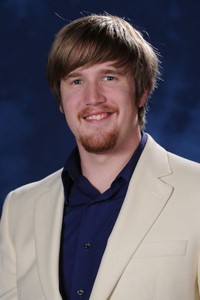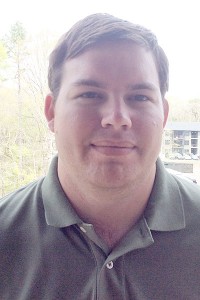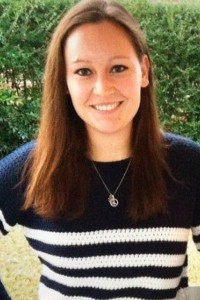Many graduating seniors across the country are eagerly awaiting word from graduate schools regarding admission to their competitive programs, but for three outstanding University of Mississippi School of Engineering students, the wait is over.
Charles “CJ” Jenkins and Frances Sullivan-Gonzalez, both of Oxford; and John Stefancik of Pace, Florida, have each been accepted into some of the nation’s strongest graduate programs for engineering. Jenkins is bound for Johns Hopkins University, Sullivan-Gonzalez is headed for the University of Texas and Stefancik is going to Massachusetts Institute of Technology.
“Our program and faculty prepare students well for job placement and graduate education,” said Alex Cheng, dean of the UM engineering school. “While some of our best students are choosing to stay to pursue their graduate education at the university, I am so pleased to see that some have the opportunity to study at the nation’s best engineering schools.”
A civil engineering and public policy leadership double major, Jenkins was also accepted at the Georgia Institute of Technology and University of Illinois at Urbana-Champaign. At Johns Hopkins, he will pursue a Ph.D. in civil engineering on a research fellowship. His emphasis area will be either cold-formed steel or structural-topology optimization.
“The School of Engineering’s setting in a liberal arts university has exposed me to a wide range of people from all majors,” Jenkins said. “Also, the networking opportunities provided by a small engineering school have been excellent and unique.”
Jenkins’ short-term goals include completing his master’s degree and his engineer-in-training period, allowing him to begin tenure as a licensed structural engineer. He can also see himself completing his doctorate and securing a position with a boutique structural-design firm. Long term, Jenkins hopes to continue work as a structural engineer, designing high-rise buildings.
While at Ole Miss, Jenkins was a member of the Sally McDonnell Barksdale Honors College and the Trent Lott Leadership Institute. He served as president of Tau Beta Pi engineering honor society and credits Elizabeth Ervin, associate professor of civil engineering, as being critical to his success as an undergraduate student.
A mechanical engineering and accountancy double major, Stefancik plans to pursue a master’s degree in technology and policy as part of the Engineering Systems Division. Recipient of a research assistantship, he also was admitted to Texas A&M University and Georgia Tech. Stefancik plans to pursue a Ph.D. or potential consulting work after completing his master’s. Long-term, he hopes to pursue an opportunity in upper-level management in a technology or engineering-based company.
“The School of Engineering provided me one-on-one interaction and access to educational resources that helped me realize the best means to pursue and achieve my career goals,” said Stefancik, a Taylor medalist. “I had the chance to complete an internship with C Spire as well as classroom projects through Viking Range and Parker Hannifin in my manufacturing coursework.”
During his tenure, Stefancik was a member of the Center for Manufacturing Excellence, Phi Kappa Phi and Delta Psi fraternity. He credits Ellen Lackey, professor of mechanical engineering; James Vaughan, CME director and professor of mechanical engineering; and Jim Chambers, senior scientist at the National Center for Physical Acoustics and associate professor of mechanical engineering, as being outstanding instructors and personal resources throughout his graduate school application process. He also acknowledged Mark Wilder, dean of the School of Accountancy, and Dave Nichols, associate professor of accountancy, as instrumental to his success as a student.
A chemical engineering and mathematics double major, Sullivan-Gonzalez will attend the Cockrell School of Engineering at UT, where she plans to study environmental and water resources engineering. Sullivan-Gonzalez received an Environmental and Water Resources Engineering assistantship, Graduate School Diversity Mentoring Fellowship, UT-Austin Graduate School Fellowship and a Cockrell School of Engineering Fellowship. She was also offered admission to University of Colorado and Tufts University.
Her research was part of completing her thesis for the Honors College.
“I worked with Dr. Paul Scovazzo (associate professor of chemical engineering) for two years, working on the dehumidification of methane using room-temperature ionic liquid membranes,” Sullivan-Gonzalez said. “I do believe my work in the lab was beneficial to my grad school applications since the grad programs are all research-based. Previous research experience is always beneficial because it demonstrates a student’s ability to think and work beyond the theoretical education we receive in the classroom.”
She is a member of Phi Beta Kappa, Phi Kappa Phi, the American Institute for Chemical Engineers and the Society of Women Engineers. Sullivan-Gonzalez was also an active member of the Ole Miss Ultimate Frisbee team. She hopes to work for an environmental consulting firm upon completion of graduate school. She credits John O’Haver, professor of chemical engineering; Debra Young, associate dean of the Honors College; and Paul Scovazzo as being outstanding mentors and advisers.


